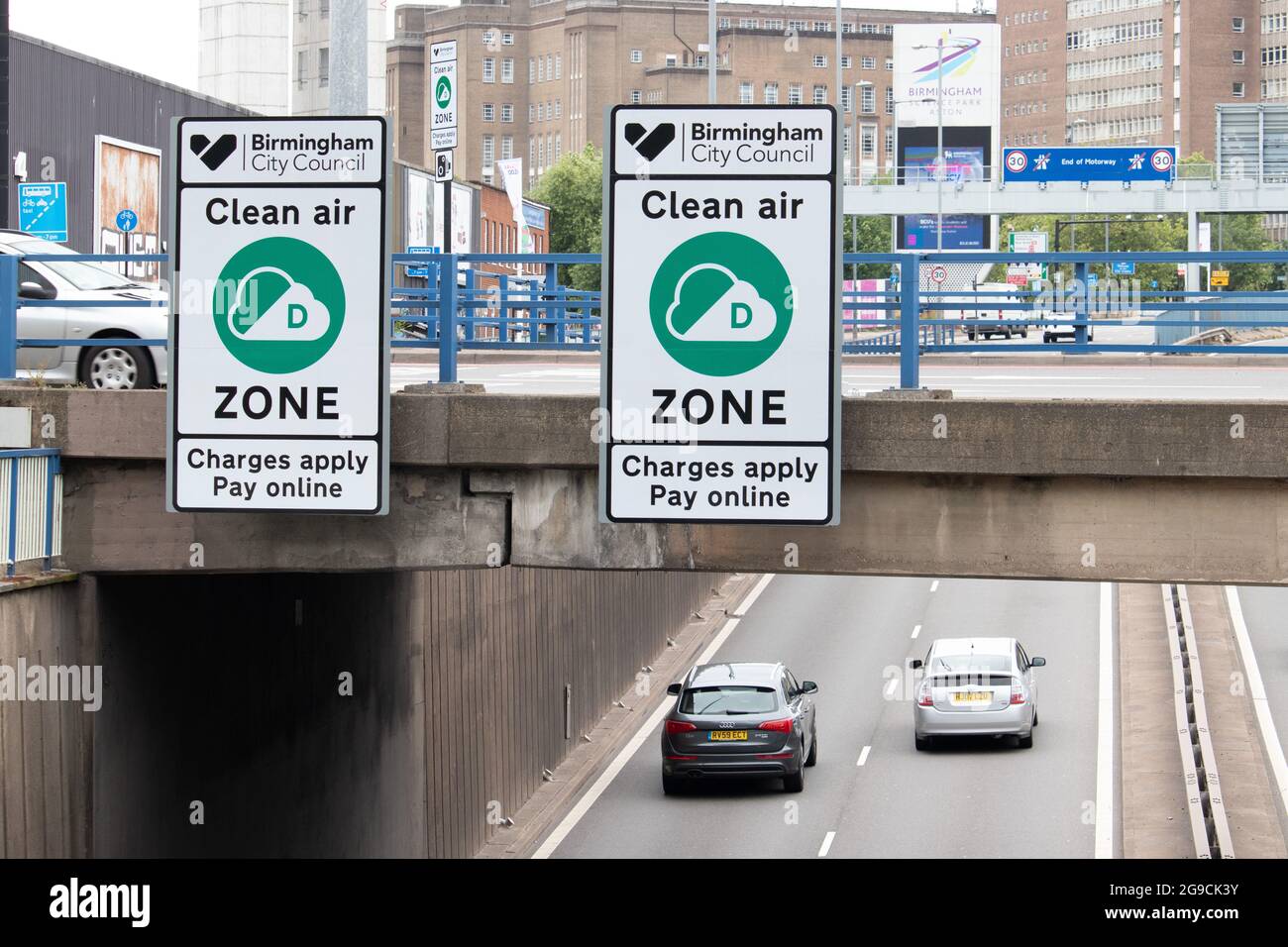Air pollution is one of the biggest threats to public health, and in response to this issue, the UK government has introduced Clean Air Zones (CAZs) throughout the country. These zones aim to reduce harmful vehicle emissions, making our cities cleaner, healthier places to live and breathe.
Clean Air Zones are areas within towns and cities where vehicles that do not meet the required emissions standards are charged a fee to enter. This is intended to promote the use of low-emission and electric cars, as well as to improve air quality and reduce the amount of harmful emissions being released into our environment.
The UK government has mandated the creation of CAZs in major cities throughout the country, with plans to introduce multiple zones in London and other parts of England. Local authorities can also implement their CAZs according to their needs and demands.
The UK government has identified air pollution as a significant public health concern, with transport recognised as one of the main contributors to this issue. The impacts of poor air quality can range from respiratory and cardiovascular issues to serious long-term health problems, including cancer.
The zones also aim to promote the use of low or zero-emission vehicles, incentivising individuals and businesses to choose greener modes of transport. This is part of the government’s long-term plan to reduce carbon emissions and achieve its net-zero emissions target by 2050.
Clean Air Zones regulate the use of vehicles within designated areas. Vehicles not meeting the minimum emissions standards are subject to a daily charge to enter the zone. The fees will vary according to the type and size of the vehicle and how long it is used in the zone. Private cars are not typically charged, but charges may apply to commercial vehicles such as buses, lorries, taxis, and private hire vehicles.
Which cities currently have Clean Air Zones?
Clean Air Zones have been established in Birmingham, Bath, and Portsmouth. Each of these zones has its own set of rules and charges.
Birmingham and Bath introduced their zones in 2021, with Bristol and Manchester planning to roll out theirs in 2022. London already has two designated zones, the Ultra-Low Emission Zone and the Low Emission Zone. The former requires minimum emissions standards for all vehicles driven within the designated area, while the latter requires commercial vehicles to meet emissions standards.
The fight against automakers and diesel emissions
Over the past few years, the battle against diesel emissions has gained significant attention in the automotive industry. Environmental campaigners are appalled by the concerning levels of diesel pollution in the air, which can lead to serious health problems, particularly in highly populated cities. As a result, governments are introducing stringent regulations to curb diesel pollution. But the problems with diesel engines and the associated emissions have been a cause for concern for a long time, and automakers have been at the centre of many controversies.
One of the most prominent automakers involved in diesel emission scandals was Volkswagen. In 2015, authorities accused the carmaker of installing special software in its diesel vehicles, which could detect when the latter were being tested for emissions and, once such a test was detected, suppress the amount of nitrogen oxide emitted during the test. However, when the cars were being driven on the road, they polluted up to 40 times more. This led to Volkswagen paying billions in fines, emission compensation and repairs for affected cars.
Another automaker to be embroiled in the diesel emission scandal was Nissan. In 2018, Nissan admitted to falsifying emissions tests in Japan, adding to the growing tally of global automakers caught cheating on emissions regulations. Nissan confessed that it had permitted improper testing procedures at its factories in Japan and had falsified data related to exhaust emissions and fuel economy. Several UK law firms are currently pushing Nissan emission claims.
Many automakers have introduced alternative technologies, such as hybrid, electric, and hydrogen-powered cars, to combat diesel emissions. Some companies are also investing in exhaust gas treatment solutions that can reduce NOx and PM emissions from diesel engines. Although these innovative technologies can require significant investment from the automakers, in the long term, they offer substantial benefits, including reduced emissions, improved air quality, and meeting environmental regulations.
What is an emission claim?
A diesel emission claim can be made for several reasons. Most often, they are initiated by government regulators or consumer advocacy groups. These claims can allege that a car manufacturer intentionally deceived consumers by installing defeat devices, software, or hardware that enabled a car to reduce its emissions during testing but subsequently disabled the emissions control systems on the open road.
Another possible cause of diesel emission claims is the failure of manufacturers to meet emissions standards or regulations. Often, this can be due to design flaws, oversights, or the use of sub-standard components.
How much will I get for my diesel claim?
There is no definitive compensation amount for successful diesel car emissions claims, and the final payout depends on the country or jurisdiction where the claim is made, the individual circumstances of the claimant, and the severity of the violation.
If you have been affected by the diesel emissions scandal, you can visit ClaimExperts.co.uk and contact an emissions expert specialising in such matters to help you fully understand your options and ensure you receive the compensation you are entitled to.








